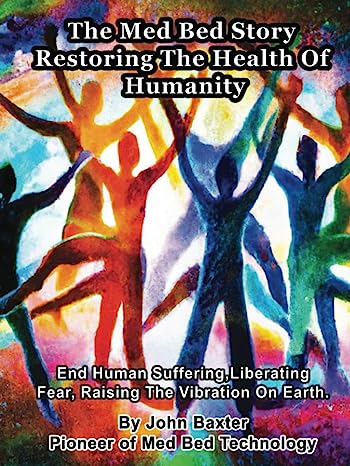Sleep is one of the most important aspects of health and well-being, yet many people struggle with getting enough restful sleep. In recent years, advances in science and technology have shed new light on sleep disorders, sleep quality, and the most effective ways to improve our sleep habits. Scientific studies are playing a vital role in shaping the sleep solutions we use today, and the impact of this research is already transforming how we approach better sleep.
In this article, we will explore how the latest scientific findings are guiding the development of innovative sleep solutions, including insights from trusted sources like https://sleeplongevityhub.com, and why sleep research matters in everyday life.
The Role of Scientific Studies in Sleep Research
Scientific studies have long been at the forefront of understanding how sleep works and what factors influence sleep quality. Researchers have studied everything from circadian rhythms to the effects of sleep deprivation, helping us understand how sleep impacts our physical and mental health. These studies provide the foundation for developing new and improved sleep solutions that cater to individual needs.
1. Understanding Sleep Cycles and Stages
Scientific studies have provided us with a deeper understanding of the stages of sleep: light sleep, deep sleep, and REM (rapid eye movement) sleep. Each of these stages plays a critical role in restorative sleep, and researchers have explored how disruptions in these cycles can lead to poor sleep quality. By understanding the science of sleep cycles, companies can create sleep solutions that target specific sleep stages, improving overall rest.
2. Circadian Rhythm and Sleep Patterns
Research has also highlighted the importance of the circadian rhythm, our body’s natural internal clock that regulates sleep and wakefulness. Studies show that maintaining a consistent sleep schedule is essential for aligning with this rhythm. Solutions such as smart lighting systems, which simulate natural light patterns, have been developed to help regulate circadian rhythms and improve sleep quality.
3. The Impact of Sleep Deprivation
Numerous studies have focused on the short- and long-term effects of sleep deprivation, such as cognitive decline, weakened immunity, and emotional instability. These studies emphasize the importance of prioritizing sleep and offer insights into what strategies can mitigate the effects of sleep loss. Research like this has led to the creation of sleep products aimed at enhancing recovery and reducing the risks associated with insufficient sleep.
From Research to Sleep Solutions
Scientific studies provide a strong foundation for the creation of effective sleep solutions. As research continues to reveal more about how we sleep and what affects sleep quality, companies are using this data to develop products and systems that address common sleep issues. Here’s how scientific research is shaping the sleep industry:
1. Sleep-Optimized Mattresses and Bedding
One of the most significant ways scientific research has impacted sleep solutions is through the development of sleep-optimized mattresses and bedding. Studies have shown that the firmness of a mattress, the materials used, and the overall design can influence sleep quality. For example, research has found that pressure-relieving materials like memory foam can reduce discomfort and improve sleep posture, leading to more restful sleep.
Innovative companies are leveraging these findings to create customizable sleep systems that adapt to individual body types and sleep preferences. By using scientific insights, brands are producing mattresses and bedding that promote better spinal alignment, reduce pressure points, and regulate body temperature, all key factors for a good night’s sleep.
2. Smart Sleep Technology
Smart sleep technology is another area where scientific research is having a major impact. Sleep-tracking devices, such as wearable tech and smart beds, provide users with real-time data on their sleep patterns. These devices use data from sleep studies to monitor sleep cycles, heart rate, and breathing patterns, offering personalized insights on how to improve sleep quality.
Smart beds, in particular, are designed with adjustable settings that allow users to change the firmness of their mattress or adjust the bed’s position to promote better circulation. This technology is grounded in research showing that personalized sleep environments can significantly enhance comfort and restfulness.
3. Grounding and Sleep Wellness
Grounding, or earthing, is another sleep solution influenced by scientific research. Studies suggest that grounding can help regulate sleep cycles by aligning the body’s natural rhythms with the Earth’s energy. As a result, grounding products like bed sheets and sleep mats have emerged, designed to help reduce inflammation and promote restful sleep by connecting the body to the Earth’s surface.
Innovative companies like antiaging bed offer a range of grounding products based on scientific research, aiming to enhance overall sleep quality by reducing electromagnetic field (EMF) exposure and promoting relaxation during sleep.
4. Sleep Supplements and Nutritional Support
Scientific studies have also explored how nutrition affects sleep quality. Research has shown that certain nutrients, such as magnesium and melatonin, play an essential role in sleep regulation. As a result, supplements designed to promote better sleep have become increasingly popular.
By incorporating ingredients supported by research, companies are creating sleep supplements that promote relaxation, regulate circadian rhythms, and support healthy sleep cycles. These products aim to provide natural alternatives to improve sleep without the need for prescription medications.
Why Sleep Research Matters
Sleep research not only shapes the development of new products but also provides valuable insights into the long-term benefits of quality sleep. Scientific studies emphasize that sleep plays a fundamental role in every aspect of health, from physical recovery to cognitive function. By understanding how sleep works and the factors that impact it, we can make more informed decisions about how to improve our sleep environments.
1. Improving Overall Health
Sleep is directly linked to overall health and well-being. Scientific research has shown that getting enough quality sleep can help improve immune function, enhance brain function, and reduce the risk of chronic conditions. By using sleep solutions informed by research, individuals can improve their health outcomes and boost their quality of life.
2. Supporting Mental and Emotional Well-Being
Research also shows that sleep has a significant impact on mental and emotional well-being. Poor sleep has been linked to higher levels of stress, anxiety, and depression. Scientific studies suggest that improving sleep quality can lead to better emotional regulation and mental clarity, underscoring the importance of using evidence-based sleep solutions to enhance mental health.
3. Empowering Personal Sleep Habits
Finally, sleep research empowers individuals to take control of their sleep habits. Whether it’s adjusting sleep routines, investing in high-quality sleep products, or using technology to track and optimize sleep patterns, individuals can use the findings from sleep studies to make informed choices about their health.
Conclusion: The Future of Sleep Solutions
As scientific studies continue to provide valuable insights into sleep, the development of innovative sleep solutions will only grow. From sleep-optimized bedding to smart technology, the connection between research and product development is shaping the future of sleep. Companies like antiaging bed are leveraging this research to create advanced sleep solutions that not only address common sleep issues but also improve overall health and well-being.
By understanding the science behind sleep, we can make more informed decisions that lead to better rest, recovery, and rejuvenation—helping us live healthier and more fulfilling lives.




